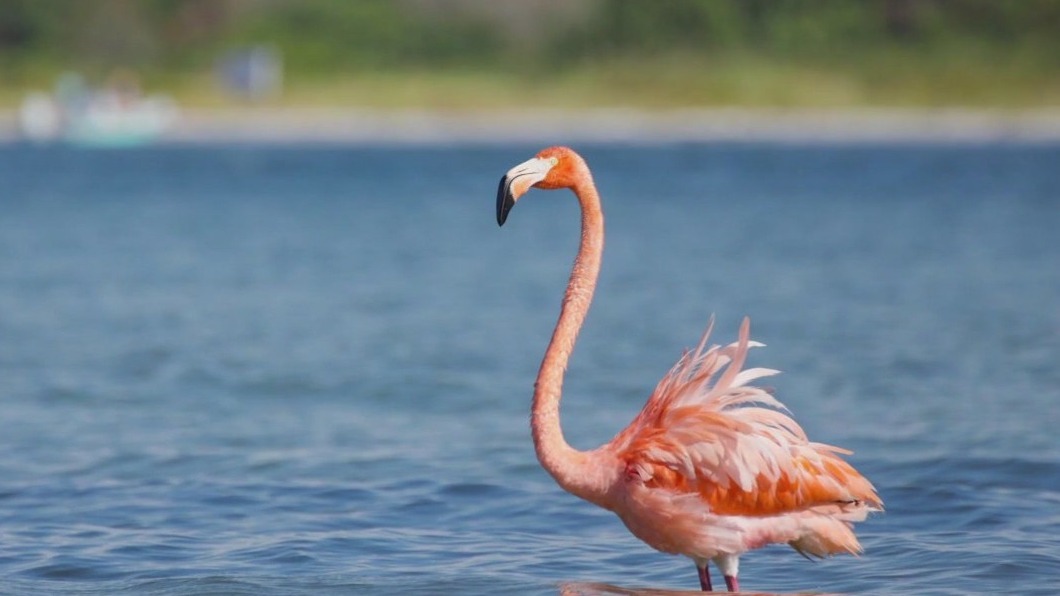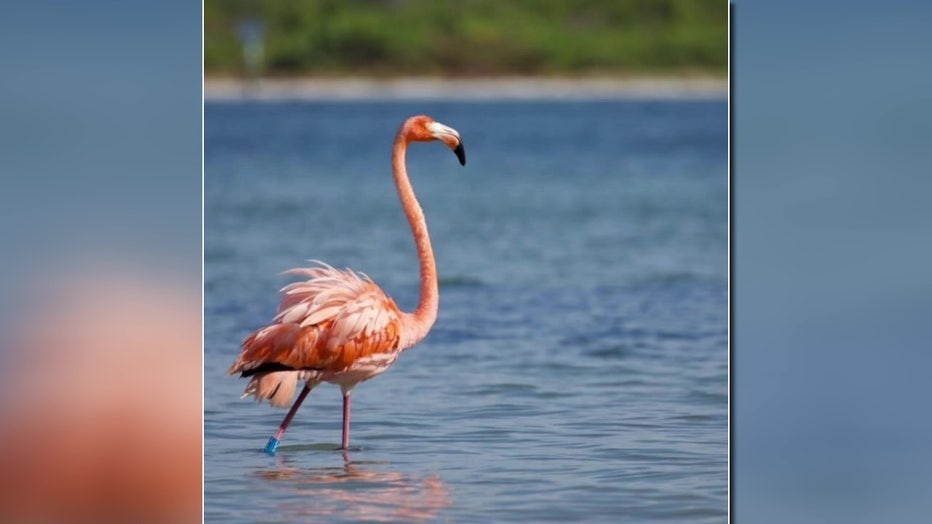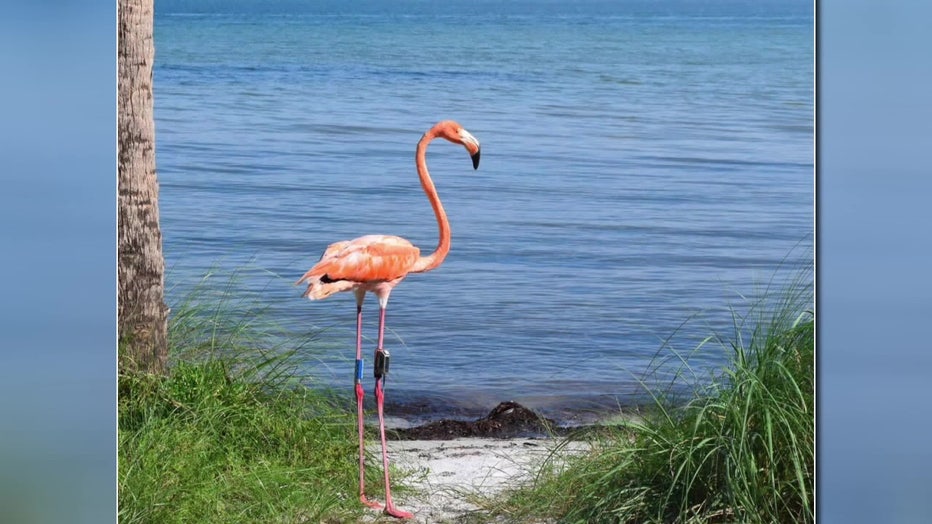Peaches the famed Hurricane Idalia flamingo turns up in Mexico after disappearing from Bay Area

Tracking flamingo migration
Peaches the Flamingo has been spotted in Mexico after going viral for being swept into the Bay Area by Hurricane Idalia. FOX 13's Jordan Bowen reports.
YUCATAN PENINSULA - A flamingo that became a viral sensation during Hurricane Idalia after being blown to Tampa Bay by wild winds has been located after disappearing for two years.
The backstory:
It's been almost two years since Peaches the Flamingo first got Tampa Bay's attention.
"Everyone will remember that in Hurricane Idalia, there was a flock of flamingos that were migrating and got caught up in the storm," Audubon Florida Executive Director Julie Wraithmell said.
Some of them, including a male flamingo later named Peaches, landed in the Bay Area.
"It was rescued by some anglers that were out in their boat and taken to rehab when it was ready to be released. Audubon Florida and our partners at Zoo Miami banded that bird just to see if we could get some more information on what its fate would ultimately be," Wraithmell said.

Courtesy: Audubon Florida
He was last spotted in October 2023 near Fort DeSoto and then he disappeared. For the next year and a half his whereabouts were unknown.
RELATED: Flamingo found off St. Pete Beach after Hurricane Idalia released back into the wild
As Wraithmell with Audubon Florida explained, bird tagging helps conservationists better understand bird migration patterns and whether rehabbed birds live long lives, but doing so is dependent on the tagged bird coming in contact with a human again and that human reporting the tag number.
What they're saying:
"You can imagine the likelihood of reciting one of those bands is not always really high. I kind of liken it to putting a message in a bottle and tossing it into the, you know, the ocean of migration and hoping that it fetches up on a beach somewhere and somebody finds it," Wraithmell said.
But that didn’t happen in Peaches case.

Courtesy: Audubon Florida
Last month, researchers in Mexico were tallying nearly 15,000 flamingo nests across the Yucatán Peninsula when one bird stood out. A blue band around a male flamingo’s leg read USO2, which is Peaches tag number. He’s the second flamingo in the United States to be tracked.
RELATED: Tracker to remain on ‘Peaches the flamingo’ as signs go up asking people to stay away from the bird
"It's a redemption story," Wraithmell stated. "Flamingos used to breed in Florida. We shot them out around 1900 for food and for feathers. We've made tremendous strides in wetland restoration, hopefully, to create a more hospitable place for them to return and perhaps even breed in future years."
The Source: This story was written with information gathered by FOX 13's Jordan Bowen.
STAY CONNECTED WITH FOX 13 TAMPA:
- Download the FOX Local app for your smart TV
- Download FOX Local mobile app: Apple | Android
- Download the FOX 13 News app for breaking news alerts, latest headlines
- Download the SkyTower Radar app
- Sign up for FOX 13’s daily newsletter
- Follow FOX 13 on YouTube

